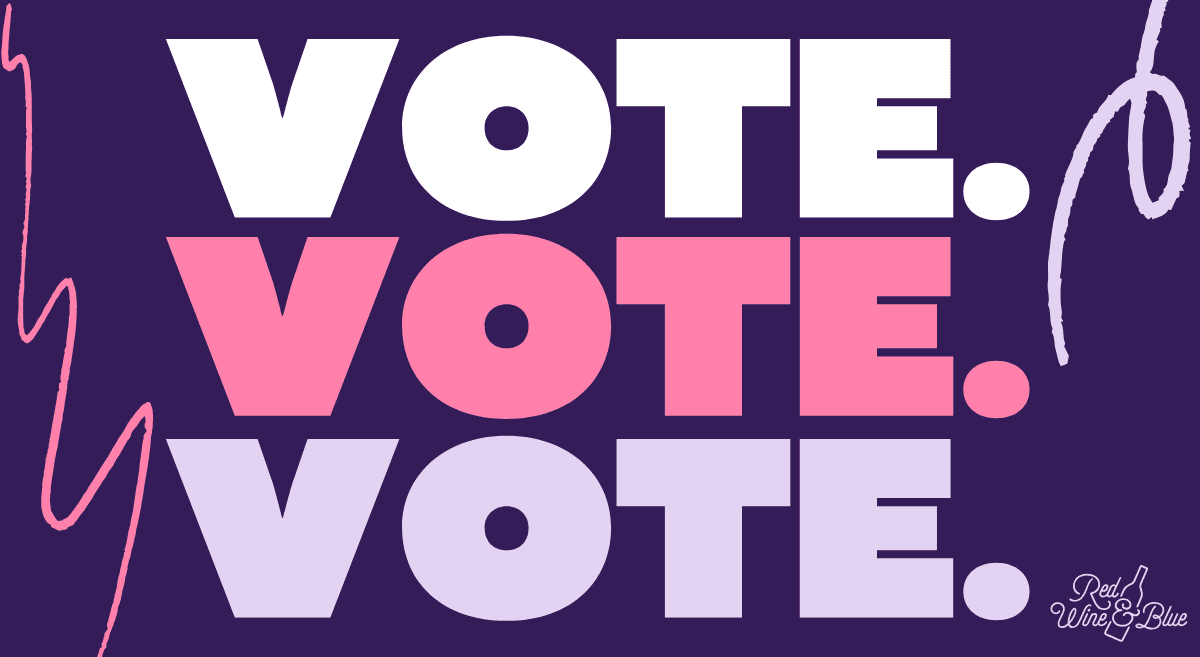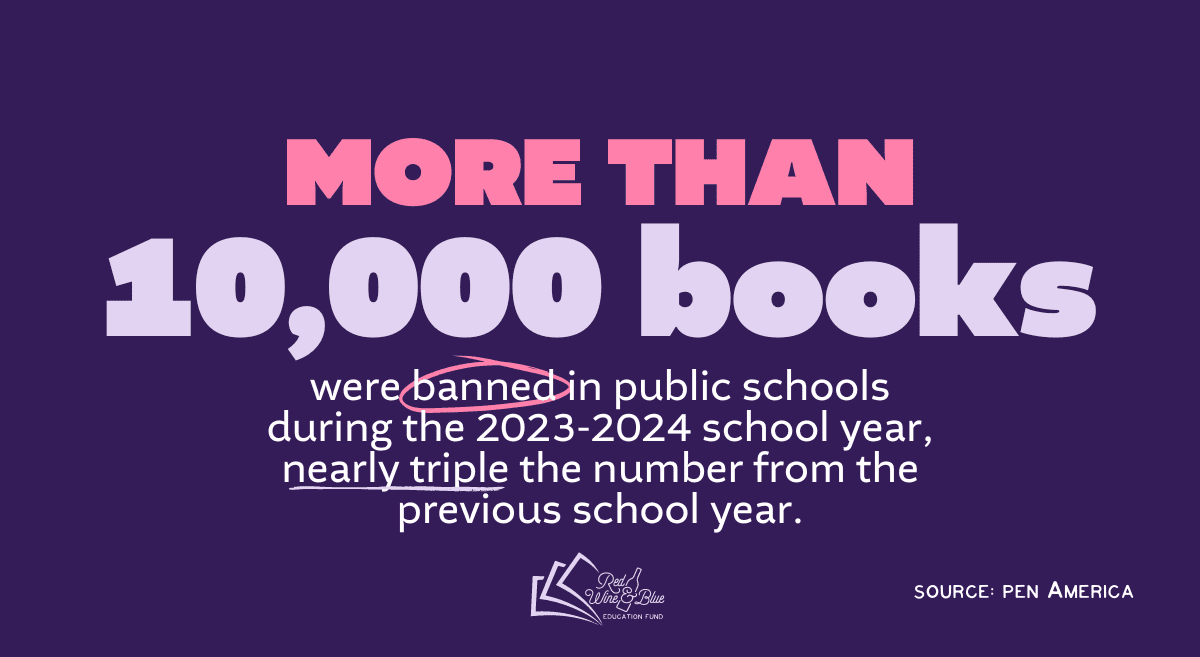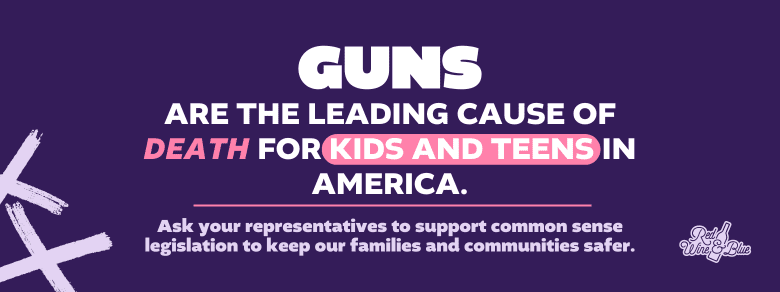
Hi there! Welcome to Easy A–Your go-to source for quick and easy actions you can take in five minutes or less about the issues you care about.
Are you a busy mom? Or maybe your work is so hectic you can’t think about anything else during the day? A lot of us are also taking care of parents or other loved ones too, leaving little time for anything else.
The good news is that these are things you can do while you’re waiting in the school pick up line, on your lunch break, or even at your kid’s soccer practice – anywhere you happen to be! And you can easily share Easy A with your friends so they can be in the know, too! We’ll send you a new action to take every week–just one, we promise –and it will always be something you can do in five minutes or less. Ready to get started? Let’s go!
Read This: What Happens to Project 2025 in 2026?
By now, you’re probably familiar with Project 2025, the extreme-right plan created for Donald Trump by the Heritage Foundation to enact their white Christian Nationalist agenda in all areas of the federal government. We’ve written about it in Easy A before, and we’ve been tracking its implementation on our website since Day One of the second Trump administration.
So where does Project 2025 stand?
Most people and organizations who are tracking Project 2025 agree that about half of its goals were implemented last year. More than 60% of the specific goals we’re tracking have been completed. The impact of these harmful policies are being felt by all of us in our schools and healthcare, on the environment, in our bank accounts, and through the loss of our civil rights, reproductive rights, and voting rights.
Many of these goals were accomplished in 2025 by Trump’s sweeping executive orders, massive budget cuts and federal layoffs made by Elon Musk’s Department of Government Efficiency (aka DOGE), and through Trump’s big budget bill passed by Republicans in Congress last July.
But many of their efforts have also been stopped. They’ve been blocked by the courts through legal action because so much of what they are trying to do is illegal and unconstitutional. We can keep this guardrail of protection in place by electing commonsense judges everywhere they are on the ballot in 2026!
What happens to the rest of Project 2025 now that it’s 2026?
Project 2025 will not go away. It remains the blueprint for the Trump administration to continue to enact their extremist agenda. But now, the Heritage Foundation has also released an update for 2026 – what they call, “Restoring America’s Promise, 2025-2026 Policy Priorities” – with nine specific priorities they want emphasized this year. Some people are calling this their Project 2026.
These priorities mostly re-emphasize goals they already laid out in Project 2025, but they also outline new strategies for how they want to get them done.
What’s in Project 2026?
Here are some of the plans they have for 2026:
- Reforming elections at the state and federal levels, including requiring proof of U.S. citizenship to vote, and ending ranked-choice voting in states where it exists.
- Continuing attacks on reproductive rights and abortion access at the state and federal levels.
- More crackdowns on immigration at the state and federal levels.
- Reversing the progress made by the Inflation Reduction Act on fighting climate change and protecting the environment by reducing solar and wind energy projects and increasing harmful oil and natural gas production.
- Eliminating the Department of Education and expanding school voucher programs, diverting public money away from our public schools and into private and religious schools.
- Enforcing the Christian Nationalist definition of family – that of a married mother and father – which can be seen as a threat to same-sex marriage and the LGBTQ+ community.
- Reducing the size of the federal government, likely through continued layoffs and cuts to important social programs, while also reducing independent agencies and increasing the President’s control over the separate branches of government.
For many of these priorities, their new strategies are at the state level, which will make Red Wine & Blue’s “Go Local” efforts even more important in 2026!
Whatever their agenda is called – Project 2025 or Project 2026 – these policies hurt our communities and are not what most Americans want for our future. Stay tuned for some easy actions you can take in the coming weeks to keep pushing back in 2026.
Watch This: Immigration, The American Fabric
The incoming Trump administration is doubling down on their campaign promises to curb immigration and conduct mass deportations, possibly even targeting naturalized citizens.
Amidst the hateful rhetoric, it’s important to remember that, while Americans disagree on how to improve our increasingly stressed immigration system, the majority of us support humane immigration policies and legal pathways to citizenship.
Watch this quick video as a reminder of how extremists are using immigration as a topic to scare and divide us, and how we can — and must — rise to this challenge and reject their hate and division.
We’ll be taking a break from our >Easy A next week to celebrate the Thanksgiving holiday, but we’ll be back the following week to talk about what we can do to support immigrants and immigration in the face of oncoming threats.
Read This: Immigration, The American Fabric
Many extremists made immigration and the fear of immigrants a central issue in their 2024 election campaigns, and it worked. A lot of them got elected, including Donald Trump with his promise to conduct mass deportations. So let’s talk about immigration.
Who Are Immigrants?
The United States is largely a nation of immigrants from all over the world. We are each diverse threads that weave together to create the beautiful American fabric.
Immigrants are not a monolith. They come from many different countries for many different reasons. Everyone is an individual with their own unique story. Whether they are fleeing war, violence, corruption, economic instability, climate disasters, or looking for opportunity, they share a desire for safety and a future for themselves and their families.
Immigrants come to the U.S. through work, student, or family visas, as asylum-seeking refugees, or meet the legal requirements for naturalization. They contribute to our communities and economy by starting businesses, serving in the military, or working in areas like healthcare, childcare, agriculture, construction, government, and service, to name a few.
Truths About Immigrants
Extremists want us to fear immigrants, so they spread dangerous myths and disinformation. But immigrants are not the problem. The problem is the partisan politicians who are dehumanizing and othering immigrants to divide us and gain political power. The scarier and more negative the lies are, the more quickly they spread and take hold. Let’s look at some facts instead.
- TRUTH: Immigrants are less likely to be criminals. US Census data shows that immigrants have never committed more crimes than native-born citizens.
- TRUTH: Most fentanyl is brought into our country by American citizens, not by immigrants.
- TRUTH: According to economists, as immigration goes up, more jobs are created — including jobs for native-born citizens. Many of the industries listed in the section above rely heavily on immigrants for their workforce.
- TRUTH: The health and stability of our economy depends on immigrants. They reduce labor shortages and contribute billions of dollars a year — yes, billions — to Social Security, Medicare, and state and local services.
- TRUTH: Only citizens can vote and have their vote counted in federal and state-wide elections.
It’s also true that our current immigration system is not equipped to handle the increase in people seeking citizenship. We can debate how to fix it, but most Americans agree, we want to solve our immigration challenges with humane policies and legal pathways to citizenship. We want our politicians to find solutions, not scapegoats.
Keeping the American Fabric Strong
So what can we do? It may feel difficult in light of the recent election results, but we don’t have to lose our values or our hope for the future.
We can have conversations with the people we know. We can stand up to partisan talking points and myth-bust their disinformation by sharing facts and real immigrant stories — starting with our own family histories. We can reject the othering of immigrants and seek to find similarities and honor our differences. We can support immigrant-owned businesses in our communities and immigrant families in our local schools. And it’s never too soon to look for like-minded politicians to support in the next election cycle.
The strength of our American fabric comes from the tight weave of our diverse threads. Let’s not let hateful politicians tear that fabric apart.
Take care of yourself through community
It’s only been about 24 hours since we woke up to the bad news. Donald Trump has won the 2024 presidential election and Republicans took control of the Senate. It hurts.
We’re feeling all the feelings, from shock to sadness to fear to rage. It’s important that we take the time to allow ourselves to feel these feelings and grieve the loss of the future we worked and hoped for.
But you don’t have to cope with any of this alone. Your Easy A this week is simple — take care of yourself and find support from the Red Wine & Blue community however you need it.
We have each other in this moment and we’re not going anywhere. There are over 600,000 women and 500 local groups in our community, and we’re leaning on each other right now for comfort and strength.
If you aren’t already connected with a Red Wine & Blue group on Facebook or locally through TroubleNation, we invite you to join one here:
Facebook Groups:
Red Wine & Blue: North Carolina
SWEEP by Red Wine & Blue (national)
Local Groups Nationwide:
Right now, our women are connecting and supporting each other in all of these spaces. We have seen how these connections can make a difference in so many ways. Today, we need them to help us process this loss.
You are not alone. We can grieve together in this moment and then heal, because we are not giving up. Women have found their power in our community and we won’t stop going, no matter who is in office.
Do This: It’s time to get out the vote!
The scariest thing to us this Halloween isn’t a movie or a costume, it’s the reality we face on November 6 if extremists get elected. So let’s make some time over the next five days to make sure that doesn’t happen!
Take 5 minutes to visit our website and sign up for Rally.
Rally is our organizational tool that helps you have conversations with friends and family about the importance of voting. Signing up only takes a few minutes. Then, you can come back to it and spend a few minutes every day picking from a list of quick actions to help inspire your people to vote.
We’ve proven that relational organizing with Rally works. Red Wine & Blue Ralliers increased voter turnout by more than 10% last election! That’s a big deal, because we know that this election is going to be close and that every vote matters.
If everyone who reads this blog uses Rally to help turn out other voters, we can mobilize tens of thousands of people to help secure big wins on November 5.
Look, we’re all feeling some election anxiety. It’s totally fine if you want to stress-eat Halloween candy for the next five days — we know we will! — but don’t let that be all that you do!
Sign up for Rally today, and take just a few minutes every day through November 5 to take simple actions. We promise it will help you feel better, and together, we’ll defeat extremism!

Watch This: It’s time to get out the vote!
How are you feeling about the upcoming election?
We’re hearing from some Red Wine and Blue members who are filled with joy and hope, and others who are filled with anxiety. Either way, you are not alone!
It’s natural to feel some anxiety, especially if you’re prone to doomscrolling, but there are many reasons to be excited about the importance of this election. Just think of what we can accomplish if we get our common sense candidates elected!
Our favorite piece of advice for how to overcome election anxiety is to take action! You’ve already taken the first step by reading this post, now watch this quick video about how Red Wine & Blue can help you take action and overcome election anxiety between now and November 5.
Feeling inspired? Stay tuned and we’ll talk more next week about how our Rally relational organizing tool can help you channel your anxiety and hope into action!
Read This: It’s time to get out the vote!
We are less than three weeks away from Election Day, and early voting has started in many places. It’s time to get out the vote!
No matter where you live, extremists are on the ballot, from the Presidential race to state houses to judicial races to school boards. It’s not hyperbole when the pundits say that this is the most consequential election of our lifetime. It’s crucial that we all show up and vote for common sense candidates and the preservation of democracy.
As a member of the Red Wine and Blue community, chances are you are a more engaged voter than the average citizen. That’s why your friends and family look to you — and trust you more than any other source — for guidance on elections. So let’s all be prepared, not only to vote ourselves, but to help everyone we know vote confidently too!

Here are some things informed voters are thinking about right now:
- Double checking our voter registration status.
- Learning our county’s early voting schedules and locations.
- Confirming mail-in or absentee voting requirements if we’re voting that way.
- Making note of our state’s voting rules and requirements, like: Do we need an ID to vote? Or, is it illegal to take a picture of our completed ballot? These things vary by state!
- Knowing our Election Day polling location and hours.
- Researching who’s on our ballot.
- Making our voting plan. Studies show that people who have made a plan to vote are more likely to do it!
Suburban women are a powerful part of the electorate. We can — and will — make a difference in this election. It starts by being up to date on all of this information, and then sharing that knowledge with everyone we know.
Start working through this list today, and in the coming weeks, we’ll share even more about how we can get out the vote and defeat extremism everywhere in November.
Do This: The Growing Movement to Ban Books
We know that book bans are on the rise at a shocking pace, and we know how bad that is for our children’s education and well being. Now, do you want some good news? The majority of Americans agree — book banning is bad for all of us.
More than 80% of Americans disagree with banning books about history or race. And a Washington Post study found that in the 2021-2022 school year, only 11 people were responsible for the majority of book bans. Book bans are being driven by a small but vocal minority, so we can stop them. And that’s exactly what we do with Book Ban Busters!
So earn your Easy A today by signing up to receive Book Ban Busters updates. We’ll keep you up to date on book bans and ways to take action. Together, we can reverse this dangerous trend.

Here are a few ways Book Ban Busters take action:
- Raising awareness by sharing information about book bans with friends and family.
- Publicly showing support for authors, educators, and librarians.
- Going to local school board and library board meetings to stay informed and ready to fight book bans if they arise.
- Voting for candidates who support the freedom to read.
- Running for a school or library board or volunteering on a campaign.
- Joining our banned book club.
- Hosting read-ins.
- Writing Letters to the Editor.
- Contacting elected representatives about legislative threats to our freedom to read.
Basically, the way we fight book bans is to organize — and that happens at the local level! Localized efforts are the most effective way to beat book bans. We win when people like you take action with the same boldness and fervor as the small groups bringing the bans in the first place. So let’s do this!
Watch This: The Growing Movement to Ban Books
As instances of book bans continue to skyrocket year over year, it’s important to know that they overwhelmingly target stories about people or characters from marginalized groups.
According to PEN America, from 2021-2023:
- 37% of all book bans targeted books about race, racism, or books with characters of color;
- 36% targeted books with LGBTQ+ characters and themes; 8% featuring transgender characters or stories.
We read last week about how diversity in books is invaluable to students. Now hear more about this from someone who knows firsthand.
Ellen Oh is an author and founding member of We Need Diverse Books, a nonprofit that strives to diversify the publishing industry. Their goal is to create a world where everyone can find themselves in the pages of a book. Ellen tells us why this is so important — even life-saving.
We Need Diverse Books has helped fuel an increase in new children’s books featuring characters of color. Twelve years ago, only 7% of children’s books published were about children of color. Now that figure is 40%. As we celebrate this, we also have to protect these stories from becoming the next targets of book bans. Next week, we’ll tell you how!
Read This: The Growing Movement to Ban Books

It’s Banned Books Week! Since 1982, this annual event supports our freedom to read and brings attention to the growing movement to ban books. So, let’s talk about the increase in book bans and why it’s so important for us to push back.
Book bans have been around for centuries. They started when governments and religious institutions wanted to censor what they saw as threats to their authority or moral standing. We’re now seeing everyday citizens challenge our access to books in schools and public libraries, and those bans are increasing rapidly.
These modern book bans are defined as when, for any period of time, a student’s access to a book is restricted or completely prohibited. PEN America has been tracking the increase in book bans since 2021. Their latest research found that there were more than 10,000 instances of book bans in the 2023-2024 school year, which is almost triple the number in the previous year!
These recent book bans are being driven by extremist groups like Moms for Liberty. They are targeting what they consider to be controversial or objectionable content, which is usually books with LGBTQ+ or non-white characters, histories of minorities, religious or political viewpoints different from their own, or sex education. “Controversial” and “objectionable” to them is really just code for ideas and viewpoints they don’t like or don’t understand, and often involves marginalized communities. When extremists are successful in getting these stories and narratives banned, they are unjustly erasing the voices and representation of entire groups of people. That erasure has very real consequences for all children.
Book bans narrow our children’s worldview by taking away their exposure to stories about other people and places. It keeps them from exploring ideas and perspectives that are different from their own, which hinders their ability to build empathy. Book bans also teach them that it’s ok to hate and censor things you don’t agree with.
For kids in the communities whose stories are being banned, it hurts even more. When kids don’t see themselves represented, they think their stories are not worthy of being told. And when they see them banned, they think their stories are shameful. All kids deserve to see themselves and relatable characters in stories to know that they are valued and are not alone.
There’s also a financial cost to all these book bans. When books are challenged, most school districts and public libraries have a process in place to review the books and rule on the challenges. That takes extra staffing and personnel hours. For example, last year in Texas, Virginia, and Pennsylvania, school districts reported spending between $30,000-$100,000 and hundreds of full-time staff hours reviewing book ban attempts! There are better ways for this taxpayer money to be spent and for these professionals to spend their time.
All this harm is being caused by a loud but small group of people. The majority of us — more than 80% — don’t want book bans, so we also have to be loud and push back. Over the next few weeks, we’ll explore how to put a stop to this increasing trend of book bans before it gets any worse.
Do This: Preventing Gun Violence
Over the past few weeks, we’ve been discussing gun violence in America. And in just that short period of time, our country has been rocked by another mass shooting at a high school and a second alleged assassination attempt on a former president. It is clear that gun violence is a nonpartisan issue — and one that threatens us all.
So how do we make our families and communities safer? Experts have shown that there are ways to reduce gun violence: requiring background checks on all gun sales; promoting the secure storage of guns; allowing for Extreme Risk Protection Orders (also known as Red Flag Laws); keeping guns out of the hands of domestic abusers and violent offenders; and supporting programs for mental health and community violence intervention. We just need politicians who are willing to turn these common sense solutions into laws!
And here’s something you can do right now in under five minutes — Tell your Senators and Congressperson to support common sense legislation to reduce gun violence. We’ve made it easy for you. Start by filling out the form directly below — or at this link — and our tool will walk you through the rest. We’ve even written a message you can use or customize to your liking.
Nothing will change until our laws do, so your representatives need to hear from you! Be a part of the solution and send your message today.

